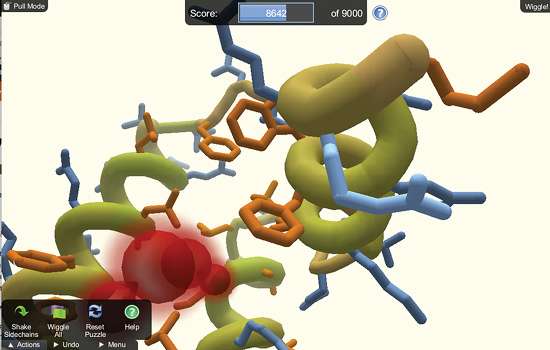Gamers Help Fight AIDS
Online players solve a tough problem that had scientists stumped for a decade.

For more than 10 years, health researchers have been stumped by an enzyme that helps retroviral infections like AIDS reproduce. Biologists studying the enzyme were unable to model its shape, a crucial first step in figuring out how to beat it.
Recently scientists turned the problem over to an unusual team of collaborators: video gamers. Using Foldit, a free online protein folding game developed at the University of Washington in 2008, those gamers competed to see who could produce the most accurate virtual model of the real-life enzyme.
In just three weeks, gamers accomplished what scientists had been unable to do for more than a decade—no special scientific under- standing required. The game offers players an intuitive 3D modeling interface that can be learned in just a few minutes. It then awards a score for each model; a higher score means a virtual virus that more closely fits the known requirements for the enzyme.
For gamers, it's a milestone. "This is the first instance that we are aware of in which online gamers solved a longstanding scientific problem," according to an article published online by Nature Structural & Molecular Biology in September. But it won't be the last. The game goes on, and according to Foldit's blog, more scientific revelations are already on the way.
Peter Suderman is an associate editor at reason.


Show Comments (35)